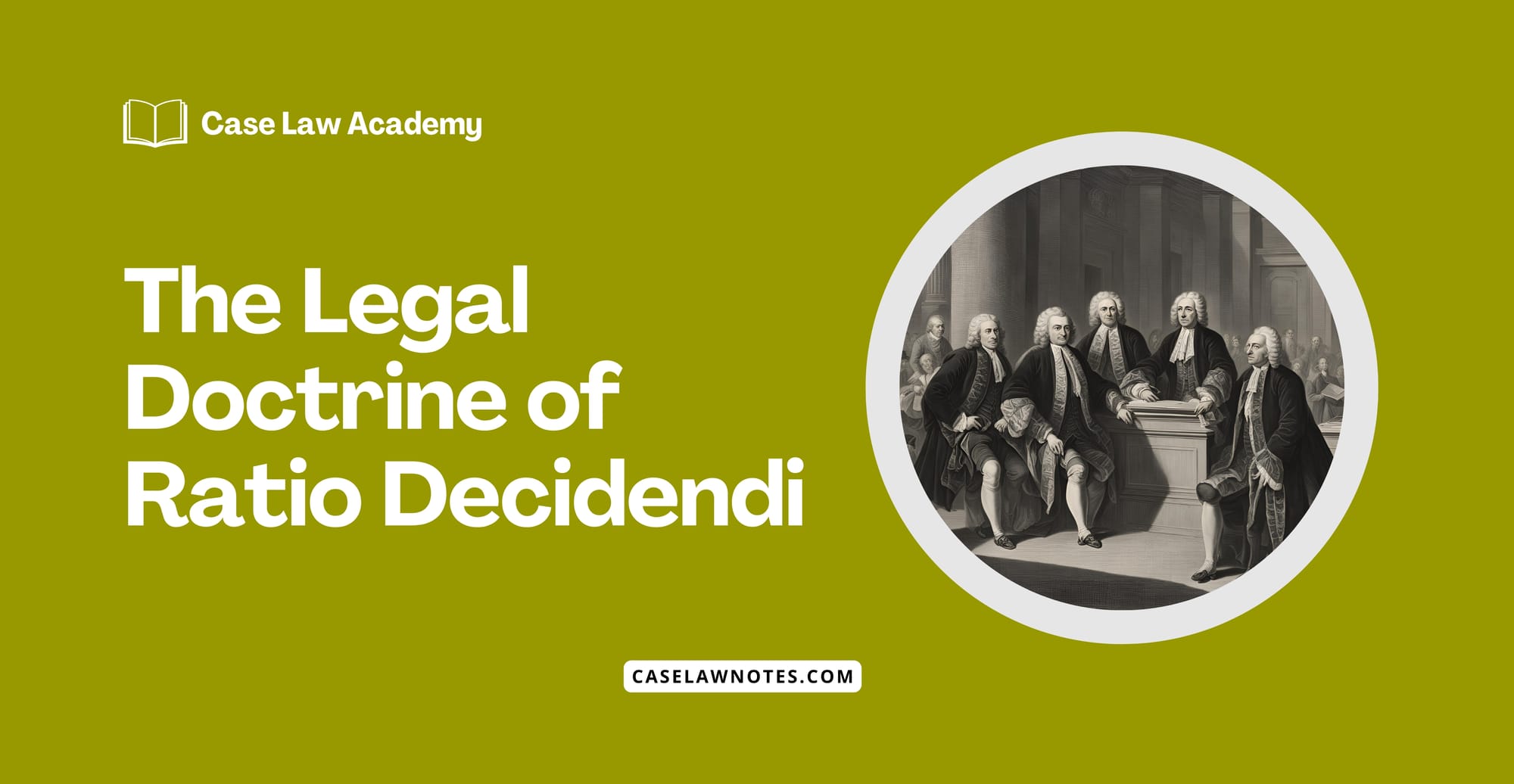🔏 Introduction: The Legal Doctrine of Ratio Decidendi
🏛️ Determining Ratio Decidendi in Judicial Decisions
👣 Ratio Decidendi and the Doctrine of Stare Decisis
👩⚖️ Ratio Decidendi in Comparative Cases and the Flexibility of Common Law
☠️ Criticisms and Limitations of Ratio Decidendi
📹 Videos: 4 videos
🎧 Podcasts: 1 podcast
🧠 Flowcharts / Mind Maps: 1 mind map
📊 Tables: 1 table
🔏 Introduction: The Legal Doctrine of Ratio Decidendi
Understanding the doctrine of Ratio Decidendi is essential for anyone studying English common law, as it forms the bedrock of judicial decision-making and precedent. Derived from Latin, Ratio Decidendi means the “reason for the decision.”
This doctrine is central to the common law system, where past judicial decisions not only influence but often bind the decisions of future courts.
In this section, we will define Ratio Decidendi, explore its role in establishing the doctrine of stare decisis, and contrast it with Obiter Dicta. We will also use case law to illustrate how these doctrines work in practice.
Defining Ratio Decidendi
Ratio Decidendi refers to the legal principle or rule of law upon which a court's decision is based. In a judgment, the ratio is the element that provides a binding precedent for future cases, obligating courts of the same or lower standing within the judicial hierarchy to apply the principle established in prior judgments.
As the “reasoning” or “rationale” behind the decision, it is not merely the outcome but the legal basis that justifies the court’s judgment.
For instance, in cases involving contract disputes, the ratio might be the court’s interpretation of a specific contractual term, while in criminal law cases, it may be the reasoning behind whether an act meets the criteria for a particular offense.
Notably, Ratio Decidendi is binding only when derived from the decision of a court competent to set binding precedent—generally higher appellate courts within the jurisdiction.



